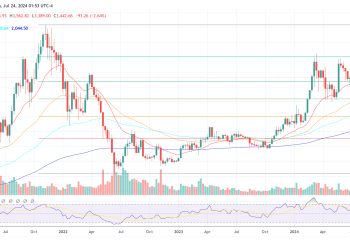Ripple Partners with Major Financial Institution to Grow Its Remittance Business
Ripple Labs has launched several partnerships with a view to to grow its standing in the crypto industry. In its recent move, Ripple partnered with one of the largest financial institutions in the Middle East.
Slow Rollouts Before the Main Thing
In a press release published earlier this week, the Qatar National Bank (QNB ) confirmed that it had teamed up with Ripple Labs on a cross-border remittance initiative. The release confirmed that both partners would research new strategies to optimize international payments and develop a new platform based on Ripple’s technology.
As part of the terms of the deal, QNB agreed that it would test RippleNet with QNB Finansbank – its Turkish subsidiary. From there, a group rollout will take place, with the goal of offering near-instant remittances and payments for all QNB clients across the world. QNB also intends to integrate Ripple into several of its other remittance corridors.
The company is a leader in digital payments and remittances, with a young, tech-savvy population that continues to move money. In 2020 alone, remittances to the country crossed $1 billion. Both companies will be looking to tap into that market – and, by extension, grow their market share.
Heba Al Tamini, the head of Group Retail Banking at QNB, confirmed that the bank is looking to offer the best in innovative technology to its customers. The deal with Ripple is part of its mission to bring that to fruition.
Navin Gupta, Ripple’s Managing Director for Asia and MENA, pointed out that this is a further expansion move for the company.
A Big Quarter for Ripple
Ripple Labs has been doing impressive work of late. The company was held back significantly by its securities fraud lawsuit from the Securities and Exchange Commission (SEC), but it has made giant strides in the past month.
Last month, Ripple announced that it was helping the Royal Monetary Authority of Bhutan to pilot a central bank digital currency (CBDC) in the kingdom. As part of the partnership, the central bank will use Ripple’s private ledger to issue and manage its digital Ngultrum.
The deal was necessitated by the need to improve cross-border payments. Ripple claimed that the CBDC could boost financial inclusion for Bhutan’s 800,000 citizens while also ensuring that increased transaction volumes don’t affect the country’s carbon footprint. Ripple’s announcement read,
“Beyond privacy, the CBDC solution is also custom-designed to handle payments at the volume of transactions required by a successful retail CBDC. This provides central banks like the RMA with the security, control, and flexibility they need to deploy a CBDC without compromising financial stability or monetary policy objectives.”
Bhutan’s government is looking to grow financial inclusion to 85% by 2023, and it believes that a CBDC will be a proper way to achieve this goal.



















